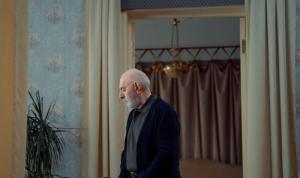Reduce stress in modern life
If all human beings have something in common, it is our search for well-being. We want to experience well-being, feel linked, get to know each other and grow. However, over and over again we encounter the same difficulty: stress, an unpleasant experience that leads to discomfort.
We live in turn in the time of stress. Never before have we experienced stress like today, and the number of people who feel stress or even that it is their biggest conditioning factor within the consultation is growing more and more. We feel stress because of work, because of difficulties in living together, because of conflicts in relationships, or because of our fast-paced and chaotic way of life. Also, increasingly, due to health problems.
Nevertheless... Do we live with more and more stress because our way of life is stressful, or because we do not know how to manage that stress?
Our way of life is undoubtedly unnatural: haste, difficulties, lack of free time, a globalized and consumerist world, more and more sleeping and eating problems, etc. What can we do with all this?
- Related article: "The 5 phases of stress (and how to combat them)"
Mitigating stress today
Stress is a psychological experience. It's an unpleasant feeling flows according to how we interpret, manage and relate to what happens outside.
It is also an emotional experience. In this article we are going to delve into what stress is, what leads you to feel it too frequently, intensely and for a long time, and above all, how you can manage what happens from your own personal change so that stress decreases and you can finally achieve your goal: live in well-being (both with yourself, with your relationships, personal or sentimental, and in the worked).
My name is Rubén Camacho, a psychologist and Human Empowerment coach, and for 11 years I have accompanied people in processes of personal change. Stress has grown especially since 2020, although this trend was already felt before. We are going to delve into your stress and how to solve it from the direct experience we have in consultation. Let's go for it.
- You may be interested: "Emotional management: 10 keys to dominate your emotions"
understanding stress
We tend to think that we were happier in our childhood because we did not feel stress. In reality, stress is felt throughout our lives. Babies experience stress due to hunger, lack of attention or lack of hygiene. Children also feel stress when they wake up, the first days of school or the heat. stress is an unpleasant feeling that helps us anticipate an external event that can be dangerous. Feeling hungry is also stress, and it helps us eat. What is it then that makes stress negative?
Stress is negative when it is too intense, frequent and long-lasting, and above all, when it does not help us to anticipate a dangerous situation or that implies a scarcity or difficulty, but rather makes us sensitized to situations with too much intensity and we react with fear, insecurity or anger.
Stress is the result of three factors.
1. External factors
Stressful external stimuli are weather conditions, noise, if the behavior of other people is especially invasive or aggressive**, disorganized routines or that do not allow you to focus on your well-being, etc. These factors are always there and we cannot do anything to change them.
2. internal factors
The way you feel, how you interpret situations, how you communicate and relate to others and what happens; namely, the state you're in. Human beings are subjective beings, who live according to a system of beliefs, interpretations, points of view and ways of managing their emotions. Also, your way of managing stress is part of this factor
3. relationship factor
The way in which these two previous factors meet, How they relate.
- Related article: "10 psychologically healthy daily habits, and how to apply them to your life"
Working on internal factors
The only factor you can work with is your internal factors, as well as making decisions that lead you to relate to the external in such a way that its consequences are alleviated.
There is a serious modern error that hinders our stress management. This is a very common phenomenon in social networks, such as blaming any other type of external stimulus as the cause of all problems (when talking about "toxic people" and other concepts far from scientific evidence and that only help us focus on the external and blame it instead of looking for our own solutions).

The solution lies in the opposite: not in blaming or looking for causes, but in focusing on solutions. What would have to change in you for the stress to decrease? How can you interpret and manage what you feel so that it was not so intense? How do you handle sensations such as anxiety, anguish, insecurity or worry?
We are going to see step by step how to work in a process of change to reduce stress. Getting out of this chaotic world and starting to build another will be the next step!
- You may be interested: "Resilience: definition and 10 habits to enhance it"
Making the stress small
We cannot change the world, but what we do in it can. Stress is positive if it helps you relate, not if it limits you to do so or intensifies the seriousness of situations. What we do in a change process to reduce stress, step by step, is the following.
First, We analyze what the stressors are for you, but above all how you manage them. How do you interpret what you feel? How do you manage it? (through your behaviors) How do you live your relationships? (if from insecure patterns, with fear, demands, expectations, etc.). Do you generate affective autonomy, or does your well-being depend too much on others and on what happens?
Faced with a similar situation, two people can manage it completely differently. A change in you and in what happens to you is not possible by changing the world, but by changing the way you understand and handle it.
In this first step we must also take into account what other experiences do you live and that may be limiting you: frequent anxiety, difficulties with certain emotions such as fear, guilt, insecurity or anger (which are exhausting and stressful when we do not manage them in a functional way), sleep problems, eating, etc.
In a second step we begin to discover how do you communicate with these experiences, how you relate to the other, how you anticipate events and how you plan them, with the goal of introducing small changes that help you manage it in a more functional way and reduce the stress.
In a third step we design together a concrete and specific action plan for you, to help you find the necessary changes (in yourself) that reduce stress. Very common changes are: learning to set limits, managing certain limiting emotions, making assertive decisions, planning and organizing to reduce stress, and above all, build routines that help you generate security, well-being, and make you avoid situations or experiences stressful.
As you apply your action plan we come to a fourth part: work with all parts of your personality, to make it a totally complete and deep process. We work with your self-esteem, your belief system, your communication, your relationships, also with your values. The important thing about a change process is that it be practical (so that you get results and feel better from the start). the beginning) but also deep (so that you discover more than you now believe about yourself and it helps you to forever).
Finally, it is about living the process in a constant way (not only with occasional sessions) but also flexible, so that the process is a help to relieve your stress and not an event more stressful (sometimes, reducing a whole process to sessions makes it more rigid and generates more stress due to problems with time and Schedule). In my case, I like to accompany you constantly (every day, for any need you have) but also flexible, so that you can adapt it to your day-to-day needs.
The objective is not that you find well-being (well-being is not an object that can be sought or found) but that you build it with your own change and actions. You get it through a process that also helps you in a stable way, since the learning stays with you forever.
- Related article: "The origin and solution for anxiety (the 4 essential factors)"
Concluding…
If you want to get it, remember that in Human Empowerment you can schedule a first session with me (from anywhere in the world) so that we can deepen your problem, find a definitive solution and above all see how I can accompany you so that you achieve it 100%.
I send you lots of encouragement, illusion and patience. All change is possible if it occurs in us.
Thanks for thinking of you.
Rubén Camacho, Psychologist and coach

